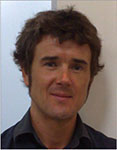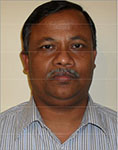Systematic geomechanical evaluation for short-term gas storage in depleted reservoirs
Abbas Khaksar A , Adrian White A , Khalilur Rahman A , Katharine Burgdorff A , Reinaldo Ollarves B and Steve Dunmore CA Baker Hughes
B Santos
C MD Energy Pty Ltd
The APPEA Journal 52(1) 129-148 https://doi.org/10.1071/AJ11010
Published: 2012
Abstract
Depleted hydrocarbon reservoirs are attractive targets for short-term gas storage with frequent injection and production cycles. Optimum well completion and injection-storage-production design in depleted reservoirs would require an understanding of important rock mechanical issues. These include drilling and completion challenges of new wells in low-pressure reservoirs accounting for potential rock fatigue due to cyclic injection/depletion and loading and unloading, and determination of maximum sustainable storage pressures that would avoid fracturing and fault reactivation. This paper describes a case study from a coal seam gas project considered for supply to a liquefied natural gas plant in Australia. The paper demonstrates a systematic approach for geomechanical risk assessments for short-term gas storage in depleted sandstone reservoirs.
Depleted sandstone gas reservoirs at a depth of 1,000 m with existing pressures of 150–300 psi are considered in this study. Historical and new well data including cores, well logs, drilling, and field data such as injection and minifracture (minifrac) tests are used to develop a field-specific geomechanical model. Field data and laboratory measurements of rock mechanical properties are used to define the stress path factors and the change in in situ stress with depletion and injection in sandstone reservoirs in the study area. Rock mechanics tests on representative core plugs under cyclic loading and unloading simulating operating depletion and injection pressure conditions are used to assess the level of rock fatigue and rock weakening under cyclic loading.
Geomechanical analyses show that despite a low fracture gradient in depleted reservoirs and the presence of non-depleted overburden rocks, new high-angled wells can be drilled safely with a relatively low mud weight in the non-depleted sections and with air in the reservoir section. Fracturing and faulting assessments confirm the critical pressures for fault reactivation and fracturing of intact rocks are beyond the planned storage pressures, and a maximum pressure of 200–300 psi beyond the initial reservoir pressures may be possible from fracturing or fault reactivation aspects. Sand production prediction evaluations indicate that new injection-production wells can be completed with no downhole sand control due to a very low risk of sanding even after considering rock weakening associated with cyclic loading.
The methodology and overall workflow presented in this paper can be applied when carrying out geomechanical risk assessments for natural gas storage in depleted reservoirs.

Abbas Khaksar is a global geomechanics advisor and subject matter expert in solids production prediction and management at Baker Hughes (GMI Geomechanics Services) in Perth, Western Australia. He holds a BSc (mining engineering) from Tehran University (1989), an MSc (petroleum geology and geophysics) (1994), and a PhD (rock physics) (1998) from the University of Adelaide. He has worked in industry and academia in petroleum rock mechanics, petrophysics, and resources exploration and development. From 1989–92, he worked for Iran geological survey as a field engineer; in 1999–2000, he was was a post-doctoral researcher at the University of Adelaide studying pore-pressure prediction and CO2 sequestration then for Geomechanics International (GMI), Perth. From 2000–05, he was a petrophysicist, geomechanics specialist, and later manager-consulting services in Asia-Pacific. He joined Helix RDS in 2005 as a senior then became a principal geomechanics specialist and worked in Perth and London offices until 2009 when Baker Hughes acquired Helix RDS. In 2010–11, he was Asia Pacific geomechanics team leader for Baker Hughes (reservoir development services [RDS]). Member: SPE, FesAus. abbas.khaksar@bakerhughes.com |

Adrian White received his PhD in structural and petroleum geology from the University of Durham in 2002. Between 2002–04 he was a Postdoctoral Fellow at the Australian School of Petroleum, University of Adelaide. Since joining GMI in January 2005, Adrian has been involved in training, consulting and project management in the Asia-Pacific region. Adrian has experience in constructing geomechanical models and pore pressure prediction from wireline log and seismic data. He has successfully implemented these processes in field and reservoir development and characterisation, fracture and fault stability, wellbore stability, drilling strategies and reservoir completion. Adrian is presently the team leader of geomechanics for the Baker Hughes-GMI Geomechanics Services in the Asia-Pacific region. adrian.white@bakerhughes.com |

Md. Khalilur Rahman (known as Khalil Rahman) is a technical geomechanics advisor with the GMI Geomechanics Services in Baker Hughes. His teaching, research and consulting career spans for more than 24 years. In the past, he held senior lecturer positions at UNSW and later at UWA where he taught various petroleum engineering courses, led curricula development in petroleum engineering, and conducted research and consulting activities in hydraulic fracturing optimisation, wellbore stability assessment and sand production prediction areas. In his university and industry positions, Kahil has completed numerous research and consulting projects in petroleum geomechanics, published in more than 65 peer reviewed journal and conference papers, offered industry short courses and supported technology and software development activities. He obtained his PhD degree from the University of Newcastle Upon Tyne, UK, and serves various SPE Committees. Member: SPE. khalil.rahman@bakerhughes.com |

Katharine Burgdorff has a degree in geology from Middlebury College and was part of a research team involved in coring in the Southern Ocean off Antarctica, as well as in the North Atlantic. She has been with GMI since 2002 and specialises in wellbore image analysis, fractured reservoir characterisation and wellbore stability, as well as GMI•Imager™ and GMI•MohrFracs™ software development. She has experience working in both the North America and Perth offices and she is now a geomechanics advisor for the Asia-Pacific region. katharine.burgdorff@bakerhughes.com |

Reinaldo Ollarves a development geologist, has been working with Santos Ltd after having experience with service company and research environments. He graduated from the Universidad Central de Venezuela, earning an award for being an outstanding student. Reinaldo has a strong background in structural geology and geomodelling conventional and coal seam gas fields. When not working, Reinaldo enjoys playing tennis, riding his bike, or socialising. He also keeps his rock hammer nearby in case he finds an interesting outcrop. Reinaldo.Ollarves@santos.com |

Steve Dunmore is presently an independent petroleum engineering consultant based in Perth. Steve holds a BSc Eng in chemical engineering from the University of Nottingham, and a MSc in petroleum engineering from Imperial College London. From 1989–96, he worked in the reservoir operations and well technology groups for the BG Group, before joining Schlumberger as a petroleum engineer. Steve joined Helix RDS in 2000 as a production technologist and was their Australia country manager from 2004–06. Since then, he has taken up technical petroleum engineering/production technology roles in London, Perth and Brisbane. Steve has worked on projects in many areas including the UK, Caribbean, Former Soviet Union, Africa, Southeast Asia and Australia. His speciality areas include well performance, well design, production optimisation, and solids management. steved@mdnrg.com |


